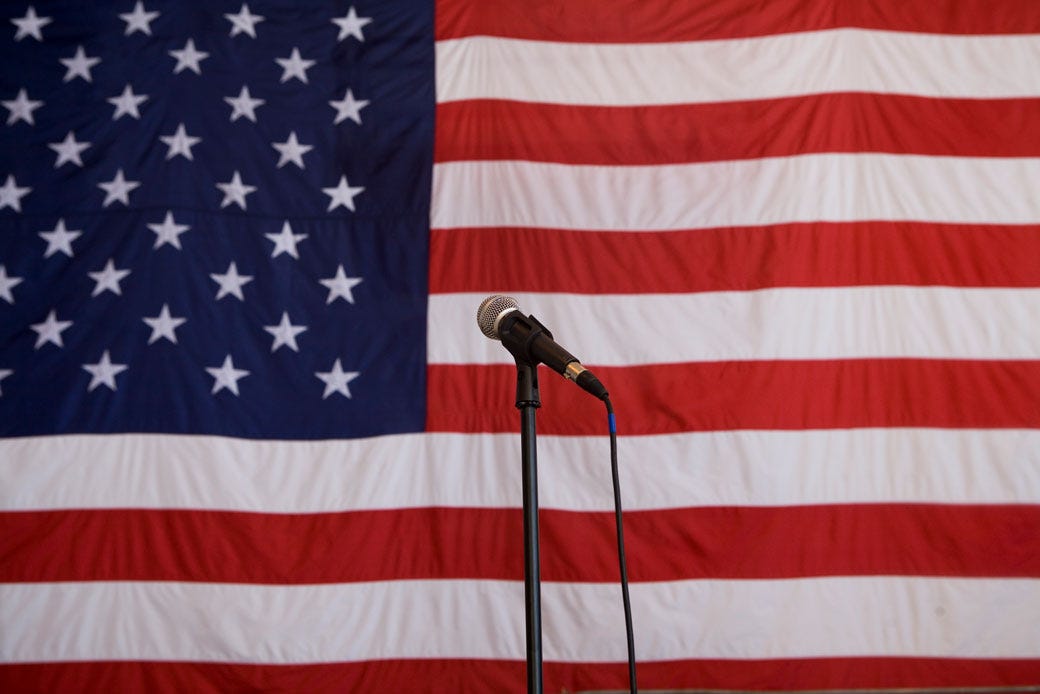Keep it Simple on U.S. Foreign Policy
Beneath the noise, a consensus on foreign policy exists among the American public
In 2006, a friend of mine working at the Democratic Senatorial Campaign Committee asked me to join some prep sessions for candidates getting ready for NBC’s Meet the Press debates.
I had done a lot of analysis and writing on Iraq in my day job, and this work attracted attention in some policy and political circles as the 2006 midterm elections approached. Iraq was the number one issue in polls, and Washington Post journalist Bob Woodward had just released a book on the war.
I joined these sessions in a personal and volunteer capacity, and what surprised me the most was how uncomfortable some of the Democratic political consultants were with Iraq and national security. Public support for the war had tanked as the death toll and financial costs mounted, but there was still a strong impulse to avoid talking about Iraq or any other foreign policy issue.
In one of the sessions, a paid campaign consultant advised his candidate: “When the Iraq war comes up, pivot to health care – that’s where Democrats are strong in the polls.” I chimed in with a suggestion about how to talk about America’s involvement in the war that connected with the lives of ordinary Americans and offered a clear policy alternative to the status quo.
The episode reminded me of the often-self-imposed national security deficit disorder Democrats had at the time – a hangover from being beat up politically for being “weak” on defense for decades after Vietnam.
Flash forward to 2021 – it’s a whole new ballgame in national security politics. Foreign policy issues have been pushed to the sidelines in the minds of most Americans because of so many troubles at home. The foreign policy camps that once existed have been obliterated and lack a broad base of public support today. Labels once used to describe different schools of thought like “liberal interventionist” really don’t mean much anymore given the disarray across the political spectrum.
Reading screeds railing against the “neo-conservatives” and their influence on foreign policy today is like hearing the story of Shoichi Yokoi, the Japanese soldier who held out in the jungles of Guam more than a quarter century after World War II was over. Yes, there are still neo-conservatives out there – but no, their foreign policy thinking doesn’t have a grip on a particular political movement. That’s because the whole political landscape on U.S. foreign policy is fractured unlike ever before.
Foreign policy experts of America: many of you have lost the plot. Few Americans care about the competing advocacy campaigns from the right or left re-fighting the battles of 2015 or 2005 all over again. They have tuned out of the inside baseball discussions about personnel picks and gossip about who is getting which mid-level job in the administration for the next couple of years. Posturing over defense policy tactics and bureaucratic reviews does not capture the attention of a country seeing thousands dying a day from a pandemic and millions out of work.
What do Americans want to hear on foreign policy instead?
They want to hear debates and new ideas about two main issues: compete and protect, how to make America more competitive in the world and how to protect the country from a few key challenges that know no national borders like the pandemic, terrorism, extremist ideologies, cybersecurity and climate change.
In these times of sharp national divisions, foreign policy is one broad area where people on both sides of the aisle can work together, despite the best efforts of ideologues to make everything a partisan wedge issue. A recent example of this – a quiet effort by Republican foreign policy veterans who did not endorse Joe Biden’s presidential candidacy but urged the swift appointment of Tony Blinken as Secretary of State in a letter signed by more than two dozen former officials including Steve Hadley, Stephen Rademaker, and Ambassador Paula Dobriansky, among other notables.
Even in this bitterly divided Congress, President Biden’s top nominations for national security positions have so far sailed through confirmation hearings and received strong bipartisan support with only a few outliers casting opposing votes – this is a modest but hopeful sign.
My marginal involvement in the Iraq debates of years ago taught me a key lesson: foreign policy needs to respond to what the public wants, but it should also lead the public on a road to somewhere rather than dead ends (and a lot of dead ends emerged on Iraq later, but that’s a different story). Right now, parts of the foreign policy debate have gotten stuck in an elite cul de sac.
A new administration offers the chance for a fresh start. The events of the past year have provided an opportunity to connect foreign policy and domestic issues in ways that send a message people want to hear: America needs to be strong at home to be strong in the world – and engaging the world in the right way can reinforce America’s revival at home.



